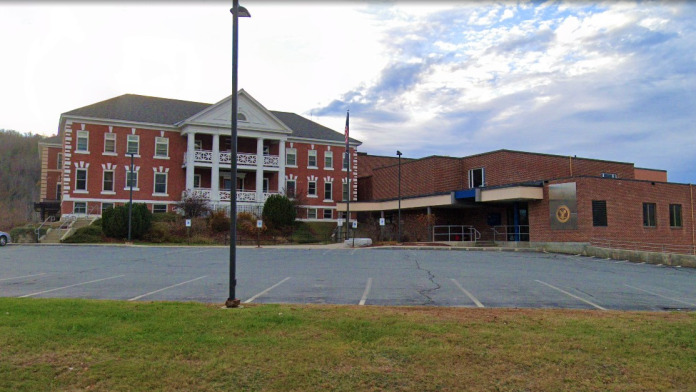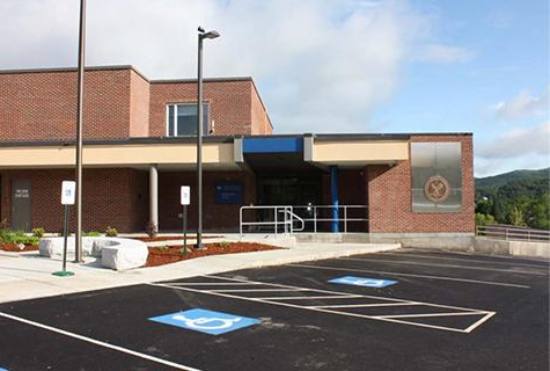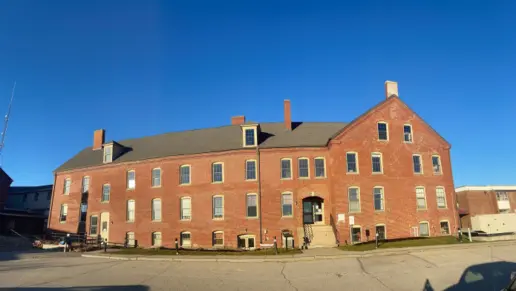They were good the first and second time I was here. Then, on occasion, I called because I was in crisis and they told me they couldn't receive me because they were in training. They didn't even care to ask why they could do for me and how was I doing during the crisis. Than ...
About Littleton VA Clinic
Littleton VA Community Based Outpatient Clinic is located in Littleton, New Hampshire. Littleton VA Community Based Outpatient Clinic offers outpatient Behavioral Health Services.
Littleton VA Community Based Outpatient Clinic honors America’s Veterans by providing exceptional health care that improves their health and well-being. They hope to serve the nation’s veterans following President Lincoln’s promise “To care for him who shall have borne the battle, and for his widow, and his orphan”.
ACT is a form of behavior therapy, grounded in mindfulness practice. The goal of therapy is to help individuals be more skillful, effective and flexible in handling challenges that might interfere with their pursuit of a vital life. ACT asks the following question – “Given what is important to me, what am I willing to do and experience to move me in that direction in this moment?”
Pain Management Group is a support group for veterans suffering with chronic pain. They check-in with the participants each week and chart their pain level, energy and mood over the past week. It is a forum for sharing information between participants and facilitators and for lending support.
Military Sexual Trauma (MST) includes persistent sexual harassment (comments, gestures, cornering, inappropriate touch, suggestions or pressure for sexual favors). It also includes gender and/or sexual orientation pressure or threats, sexual assault and/or rape. Male and female veterans may have experienced MST. A safe environment to report military sexual trauma is maintained at the WRJ VA. All veterans, male and female, are asked by VA medical and/or mental health providers whether they may have experienced MST.
Anger management provides education and support to individuals who have had difficulty managing anger. It is available in a group or individual setting. Anger management provides education about a variety of techniques and strategies to effectively deal with anger. It provides support to help each individual identify his or her triggers and cues and to develop skills to cope with anger.
Veterans are able to see a psychiatrist on the computer with the help of a webcam. This allows veterans to receive specialized care without having to drive long distances. The White River Junction VA Mental Health Service and the Richford Health Center, in Richford, Vermont, have begun a new program to bring VA Mental Health services to veterans in Northwestern Vermont at the Richford clinic, using audiovisual communications (television and microphone).
Specialized Geriatric Psychiatry services are provided through the Geriatric Evaluation and Management (GEM) team. This team includes geriatric specialists from Internal Medicine, Psychiatry, Neurology and Social Work. Patients are seen by the entire team at the first visit and follow-up plans made according to need. In addition, a board certified Geriatric Psychiatrist is available to provide consultation for other mental health clinicians caring for older veterans.
Mental Health Intensive Case Management (MHICM) is a community based program for veterans with very disabling mental health problems who live within an hour’s drive of the WRJ VAMC. The program provides mental health services to eligible veterans in their homes and communities. The goal of the MHICM program is to support veterans in their recovery goals and minimize demoralizing crises.
Latest Reviews
Rehab Score
Gallery


Location
Accepted Insurance
Other Forms of Payment
Private insurance refers to any kind of healthcare coverage that isn't from the state or federal government. This includes individual and family plans offered by an employer or purchased from the Insurance Marketplace. Every plan will have different requirements and out of pocket costs so be sure to get the full details before you start treatment.
Self-pay involves paying for treatment out of your own pocket. You can use savings or credit, get a personal loan, or receive help from family and friends to fund your treatment. If you don't have insurance or your insurance plan doesn't cover a specific program, self-pay can help ensure you still get the care you need.
Financial aid can take many forms. Centers may have grants or scholarships available to clients who meet eligibility requirements. Programs that receive SAMHSA grants may have financial aid available for those who need treatment as well. Grants and scholarships can help you pai for treatment without having to repay.
Military members, veterans, and eligible dependents have access to specific insurance programs that help them get the care they need. TRICARE and VA insurance can help you access low cost or no cost addiction and mental health treatment. Programs that accept military insurance often have targeted treatment focused on the unique challenges military members, veterans, and their families face.
Addiction Treatments
Levels of Care
Treatments
The goal of treatment for alcoholism is abstinence. Those with poor social support, poor motivation, or psychiatric disorders tend to relapse within a few years of treatment. For these people, success is measured by longer periods of abstinence, reduced use of alcohol, better health, and improved social functioning. Recovery and Maintenance are usually based on 12 step programs and AA meetings.
Treatment provided at drug rehab in New Hampshire prepares individuals to handle life stressors without using substances. Participants get the tools and support they need to maintain lifelong recovery.
A combined mental health and substance abuse rehab has the staff and resources available to handle individuals with both mental health and substance abuse issues. It can be challenging to determine where a specific symptom stems from (a mental health issue or an issue related to substance abuse), so mental health and substance abuse professionals are helpful in detangling symptoms and keeping treatment on track.
Opioid rehabs specialize in supporting those recovering from opioid addiction. They treat those suffering from addiction to illegal opioids like heroin, as well as prescription drugs like oxycodone. These centers typically combine both physical as well as mental and emotional support to help stop addiction. Physical support often includes medical detox and subsequent medical support (including medication), and mental support includes in-depth therapy to address the underlying causes of addiction.
Programs




Clinical Services
This psycho-educational group provides skills to create successful change. This involves the initiation of abstinence, the prevention of relapse, and the development of new ways to cope with negative thoughts. Cognitive Behavioral Therapy (CBT) is a therapy modality that focuses on the relationship between one's thoughts, feelings, and behaviors. It is used to establish and allow for healthy responses to thoughts and feelings (instead of unhealthy responses, like using drugs or alcohol).
Dialectical Behavior Therapy (DBT) is a modified form of Cognitive Behavioral Therapy (CBT), a treatment designed to help people understand and ultimately affect the relationship between their thoughts, feelings, and behaviors. DBT is often used for individuals who struggle with self-harm behaviors, such as self-mutilation (cutting) and suicidal thoughts, urges, or attempts. It has been proven clinically effective for those who struggle with out-of-control emotions and mental health illnesses like Borderline Personality Disorder.
People experience long term benefits from group therapy sessions that build a strong support network and create lasting connections that you can use throughout your recovery efforts. Building relationships within a group therapy environment helps enhance your social skills and reduce your stress levels, all contributing to promoting sobriety.
In individual therapy, a patient meets one-on-one with a trained psychologist or counselor. Therapy is a pivotal part of effective substance abuse treatment, as it often covers root causes of addiction, including challenges faced by the patient in their social, family, and work/school life.
Trauma therapy addresses traumatic incidents from a client's past that are likely affecting their present-day experience. Trauma is often one of the primary triggers and potential causes of addiction, and can stem from child sexual abuse, domestic violence, having a parent with a mental illness, losing one or both parents at a young age, teenage or adult sexual assault, or any number of other factors. The purpose of trauma therapy is to allow a patient to process trauma and move through and past it, with the help of trained and compassionate mental health professionals.
Whether a marriage or other committed relationship, an intimate partnership is one of the most important aspects of a person's life. Drug and alcohol addiction affects both members of a couple in deep and meaningful ways, as does rehab and recovery. Couples therapy and other couples-focused treatment programs are significant parts of exploring triggers of addiction, as well as learning how to build healthy patterns to support ongoing sobriety.
Research clearly demonstrates that recovery is far more successful and sustainable when loved ones like family members participate in rehab and substance abuse treatment. Genetic factors may be at play when it comes to drug and alcohol addiction, as well as mental health issues. Family dynamics often play a critical role in addiction triggers, and if properly educated, family members can be a strong source of support when it comes to rehabilitation.
Nutrition therapy, aka medical nutrition therapy (MNT), is a way of treating physical, emotional, and medical conditions through diet. Specific dietary plans are designed by professional nutritionists or registered dietitians, and patients follow them in order to positively affect their physical and mental health.
Experiential therapy is a form of therapy in which clients are encouraged to surface and work through subconscious issues by engaging in real-time experiences. Experiential therapy departs from traditional talk therapy by involving the body, and having clients engage in activities, movements, and physical and emotional expression. This can involve role-play or using props (which can include other people). Experiential therapy can help people process trauma, memories, and emotion quickly, deeply, and in a lasting fashion, leading to substantial and impactful healing.
Amenities
-
Private Setting
Accreditations

The Commission on Accreditation of Rehabilitation Facilities (CARF) is a non-profit organization that specifically accredits rehab organizations. Founded in 1966, CARF's, mission is to help service providers like rehab facilities maintain high standards of care.
CARF Accreditation: Yes

The Joint Commission, formerly known as JCAHO, is a nonprofit organization that accredits rehab organizations and programs. Founded in 1951, the Joint Commision's mission is to improve the quality of patient care and demonstrating the quality of patient care.
Joint Commission Accreditation: Yes
Contact Information
264 Cottage Street
Littleton, NH 03561



